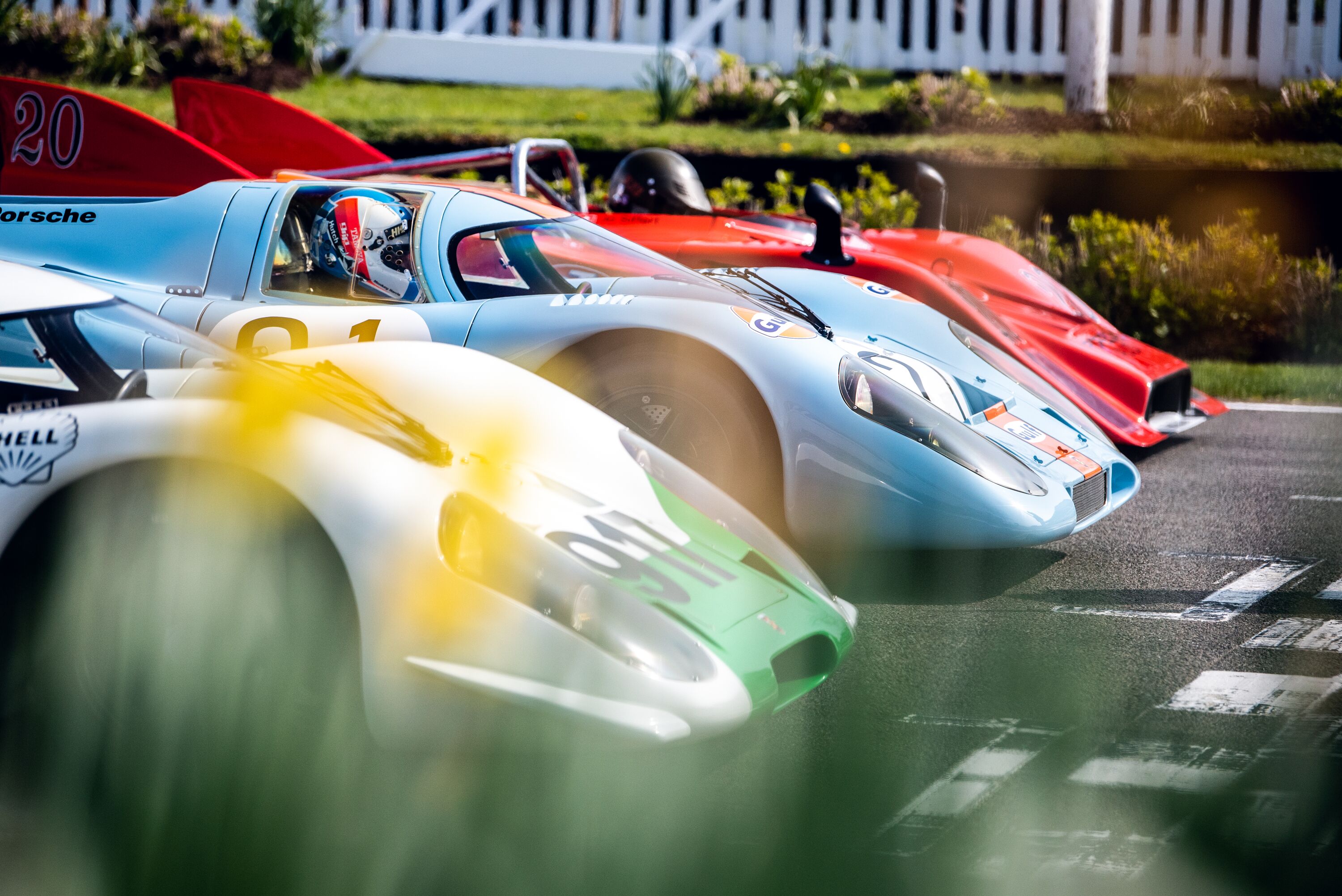Highlights from the Cartier Style et Luxe
The Cartier Style et Luxe concours is always one of the must-see elements of the Goodwood Festival of Speed presented by Mastercard. It’s not your usual concours competition in that the judges are briefed to award points for the cars’ design and engineering rather than on condition. Consequently, it’s the concept of each car that shines rather than the inside of its exhaust pipe.

If it’s style and engineering that count, it’s hard not to make a beeline for the McLaren F1 category first, the display including the car’s evolution from road car to racer. The purity of the original concept is hard to top, but you’ll also see a GTR from when the road car was turned into a very successful race car. It was later adapted to Longtail form to stay competitive and, yes, we have one of those on the lawn. It’s 30 years since the McLaren F1 first hit the road, and its reign as the fastest road-legal car was lengthy.

Switching from Britain to Italy, the category for front-engined V12 Ferraris includes a spread of cars from 1953 to 1970. The sharp-edged lines of the 365 Daytona at the newer end of that scale is a contrast to the gentle curves of its forebears, many of them sculpted by long-time Ferrari collaborator Pininfarina. Something they all share is Continent-crossing ability that makes us want to point their noses home to Italy the moment FOS 2022 ends.
A second Ferrari class features all the top-level poster cars, from the 1984 288 GTO to the LaFerrari from 2015. In between are the F40, F50 and Enzo. For us, the F50 – which was somewhat maligned when new – has really come of age and holds its own against classics-in-their-own-lifetime machines that bookend it. We wonder how the judges will see it.
Sticking with the green, white and red theme a little longer, we celebrate Lancia’s two decades of rally dominance from 1971 to 1992. While Lancia hasn’t won a World Rally Championship since, it clocked up so many in that period that no other manufacturer has yet equalled its number of titles. The Cartier class features the road-going versions of the stage heroes, from Fulvia Monte Carlo to Delta Integrale Evo 2. The class includes the wonderful, built-for-purpose Stratos, which provides us with a neat segue into the next category.
Pioneers of mid-engined road cars are up next. While the virtues of the mid-engined layout were known to Auto Union as far back as the 1930s, it took until the 1960s before the first mid-engined road car came into being. That car was the Rene Bonnet Djet, and it was quickly followed by a host of similarly configured cars throughout the decade. The Lotus Europa, Unipower GT and Elva GT160 were among those early rivals.
From small sports cars to grand tourers. In the 1930s, Europe’s aristocrats needed a fast, stylish and sophisticated way to get from city to country. Our Les Grandes Routieres class celebrates that tradition, with French and Italian cars typically leading the way. Lancia and Bugatti feature in the line-up, but for us it’s the 1932 Bucciali TAV8-32 V12 ‘Flèche d’Or’ that steals the show. Just drink in its low roof and long bonnet. Oh, and did we mention it has a V12 engine and front-wheel-drive?
Rather less grand, but no less intriguing, is the diverse line-up of Austin 7s, which have their own dedicated category. From the most basic form of family transport to go-anywhere military applications via sports cars, the popular 1920s Austin was nothing if not diverse. The humble model also helped kick-start other marques, including SS which later morphed into Jaguar Cars.
Photography by Pete Summers and Joe Harding
FOS 2022
Festival of Speed
Cartier Style et Luxe

Festival of Speed
Gallery: Cartier Style et Luxe at the 2022 Festival of Speed

Festival of Speed
All the Cartier Style et Luxe winners

Festival of Speed
Gallery: The serene Cartier Style et Luxe at FOS
















































































